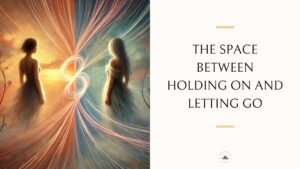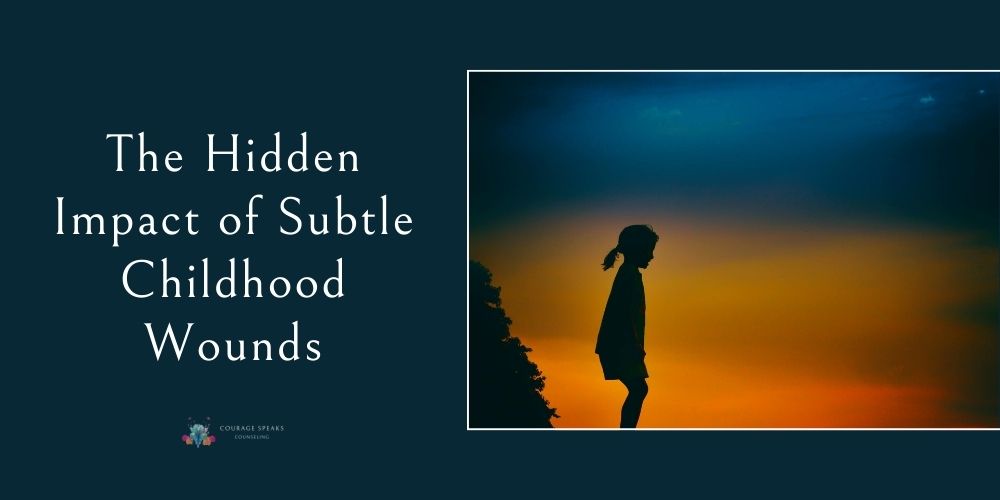As adults, it’s easy to dismiss certain childhood experiences as insignificant or to downplay their effects on our emotional well-being. We may look back at seemingly minor moments—like a hurried dismissal from a parent, a classmate’s teasing, or a lack of validation during a school presentation—and think, “That didn’t really matter.” Yet, when we shift our perspective to view these experiences through the eyes of the child we once were—perhaps the 5-year-old who felt responsible for their parents’ arguments or the 12-year-old who faced the sting of isolation in a crowded room—we begin to understand how these moments felt monumental at the time.
For that child, these experiences were far from trivial; they were profound and shaped how they viewed themselves and their world. These subtle relational wounds create a narrative of unworthiness, shame, and disconnection that can linger long into adulthood.
We often use the term “trauma” to refer to extreme events, such as abuse or loss. However, it can be beneficial to broaden our understanding to include terms like “emotional neglect” or “relational wounds.” These concepts capture the nuanced experiences many individuals face, highlighting how the absence of support or recognition can deeply affect emotional development. Emotional neglect, characterized by a lack of emotional availability from caregivers, can lead to feelings of inadequacy and shame without the overt intensity we typically associate with trauma.
Crucially, how we experience an event and how it is responded to or processed afterward play significant roles in determining its long-lasting effects. If a child can process a highly traumatic experience in a healthy way, they may move forward without significant lasting damage. Conversely, a seemingly subtle moment, such as not feeling heard, can have far-reaching impacts, especially if the child lacks a safe space to process their feelings and express their needs. Without that acknowledgment and support, these moments can solidify into deep-seated beliefs about self-worth and belonging.
For example, think of a child who excitedly shares a drawing with their parent, hoping for praise and validation. If the parent, distracted by their own concerns, offers only a brief acknowledgment, the child may internalize the message that their creativity doesn’t matter. This experience can lead to a lingering belief of being unworthy of attention and support.
Similarly, consider a young teen who faces exclusion from a friend group, feeling a deep sense of loneliness that envelops them during what should be joyful moments. This experience can become a defining moment, reinforcing a narrative of isolation and inadequacy. If this teen has no one to talk to about their feelings, they may carry these beliefs into adulthood, affecting their relationships and sense of belonging.
Understanding these concepts requires a shift in perspective. It’s essential to recognize that emotional wounds are not solely about the severity of an event; they are about how that event is perceived by the individual. A child lacks the emotional tools and context to fully process their experiences. As adults, we can help bridge that gap by validating their feelings and experiences, acknowledging that what may seem trivial to us could have been deeply impactful for them at the time.
Healing involves revisiting these moments with kindness, allowing ourselves to feel the weight of the child’s experience. Instead of dismissing these memories, we can honor the truth of our childhood feelings by recognizing, “That felt like everything.” This compassionate engagement with our past is essential for integrating the various aspects of ourselves, allowing them to come together in a more cohesive and healthy way.
By recognizing these subtle wounds and their influence, we open the door to understanding ourselves more fully. We can begin to unravel the patterns stemming from these relational wounds, creating space for healing and growth. Ultimately, by embracing our complex emotional landscape and viewing these experiences through the lens of emotional neglect or relational wounds, we pave the way for transformation and resilience. Our past does not define us; rather, it informs our journey toward a more authentic life, where we can foster healthier relationships with ourselves and others.
Embracing Shadows, Illuminating Hope,
Chelsey Fjeldheim, LCSW
Empowering Souls on the Path of Healing
Copyright © 2024 Chelsey Fjeldheim, Courage Speaks Counseling




